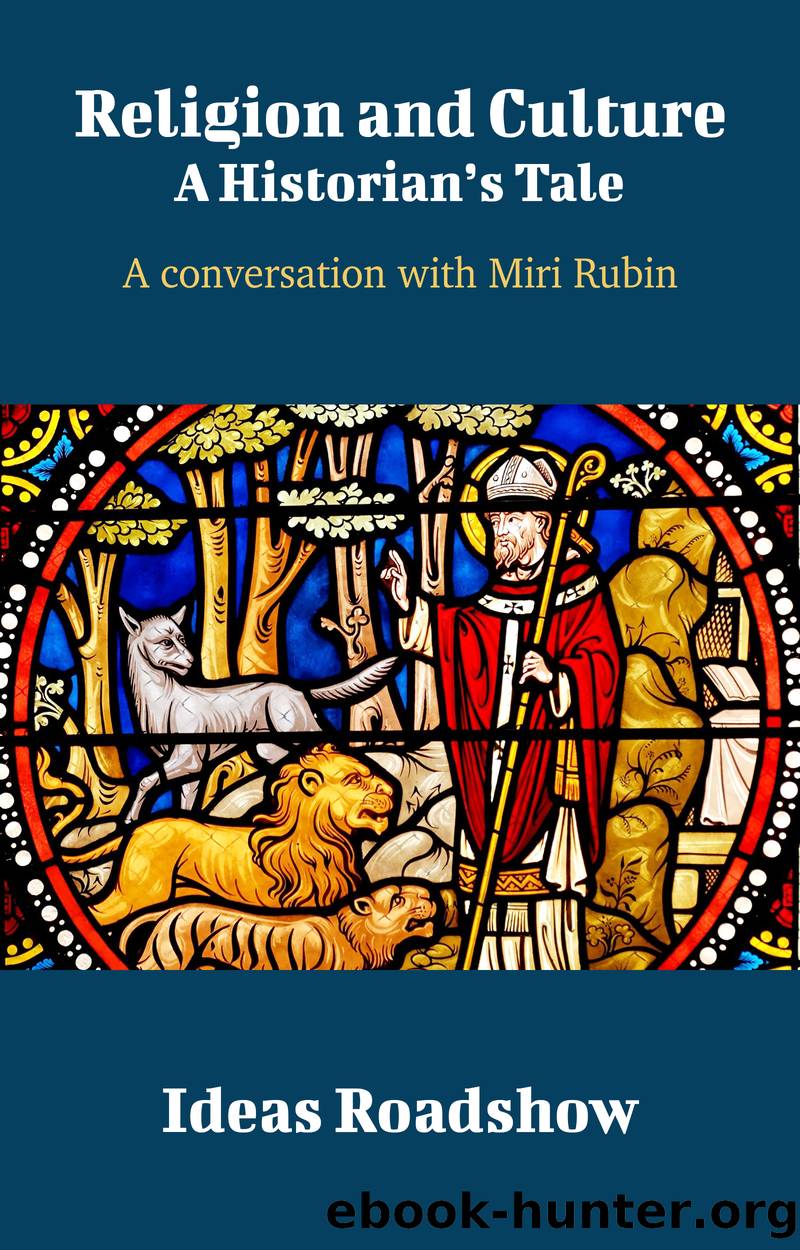Religion and Culture by Howard Burton

Author:Howard Burton
Language: eng
Format: epub
Tags: History, Religious Studies, Anthropology, Medieval History
Publisher: Open Agenda Publishing
Published: 2021-03-30T00:00:00+00:00
Questions for Discussion:
Do you think that our modern world is more, less, or equally âfaith-basedâ than other historical periods?
Do you agree with Miriâs speculations that medical progress in minimizing the level of nagging, chronic pain might in general make us more tolerant and less violent on a societal level?
III. William of Norwich
Fabricating hatred
HB: Since you brought up William of Norwich, I have a couple of questions about that. First off, you published an English translation of Thomas of Monmouthâs book, The Life and Passion of William of Norwich. Iâd like to ask how that came about, but before I do, I would guess that it must have been quite a lot of work.
MR: Yes. It was 44,500 words. Itâs not classical Latin, itâs medieval Latin. Itâs not so much that itâs easier, itâs that Iâm used to reading medieval Latin. But it was certainly difficult, partly because Thomas of Monmouth was a monk with a certain version of 12th-century learned Latin, where he would show off quite a lot, by various syntactical arrangements that are very hard to render in modern English translation.
For example, after a miraculous cure, he loved saying things like, âAnd they were joyfully joyful.â Now, to us that would sound appalling, but in the Latin it has a certain something; and he does a lot of this type of alliteration, cumbersome alliteration. So I had to decide what to do with that.
So in the Introduction, I explained that he was using these various forms, and in some cases I would put in a note for the reader saying, Iâve translated it this way, because this is what he said, to give you the sense of what heâs trying to do, to emphasize that it wasnât a case that I was simply being lazy with my own choice of words. So, there was that.
It was an education, though, thatâs true. Because I did the Virgin Mary book before (Mother of God: A History of the Virgin Mary), so I had been reading a lot of devotional texts, a lot of liturgy, a lot of prayers.
And they have their own very recognizable style, and very recognizable vocabulary. So I had to re-equip myself, particularly on the issue of medicine, there was lots of describing of limbs, and diseases and all that.
But it was also just the case that my author was showing off a lot, so yes, it was an education. But a productive one, I think.
My PhD was fully based on archival research, but I remember Christopher Brooke saying to me, âEvery medievalist should at some point edit a text. Just edit a text, and bring something into circulation. It also hones those particular skills.â
He was an amazing Latinist, and for decades was a very great editor of an extremely distinguished series, Nelsonâs Medieval Texts, which then became the Oxford Medieval Texts and are still going, so he did so much in terms of preparing learned texts for our use in both Latin and the translation.
I was really, really proud that he liked my translations; and if I had a question, I was able to ask him.
Download
This site does not store any files on its server. We only index and link to content provided by other sites. Please contact the content providers to delete copyright contents if any and email us, we'll remove relevant links or contents immediately.
| Belgium | France |
| Germany | Great Britain |
| Greenland | Italy |
| Netherlands | Romania |
| Scandinavia |
Room 212 by Kate Stewart(5105)
The Crown by Robert Lacey(4808)
Endurance: Shackleton's Incredible Voyage by Alfred Lansing(4770)
The Iron Duke by The Iron Duke(4350)
The Rape of Nanking by Iris Chang(4204)
Joan of Arc by Mary Gordon(4104)
Killing England by Bill O'Reilly(3997)
Say Nothing by Patrick Radden Keefe(3975)
I'll Give You the Sun by Jandy Nelson(3430)
Shadow of Night by Deborah Harkness(3361)
Hitler's Monsters by Eric Kurlander(3330)
Mary, Queen of Scots, and the Murder of Lord Darnley by Alison Weir(3208)
Blood and Sand by Alex Von Tunzelmann(3196)
Eleanor & Park by Rainbow Rowell(3153)
Darkest Hour by Anthony McCarten(3119)
Margaret Thatcher: The Autobiography by Thatcher Margaret(3081)
Book of Life by Deborah Harkness(2935)
Red Famine: Stalin's War on Ukraine by Anne Applebaum(2930)
The One Memory of Flora Banks by Emily Barr(2857)
